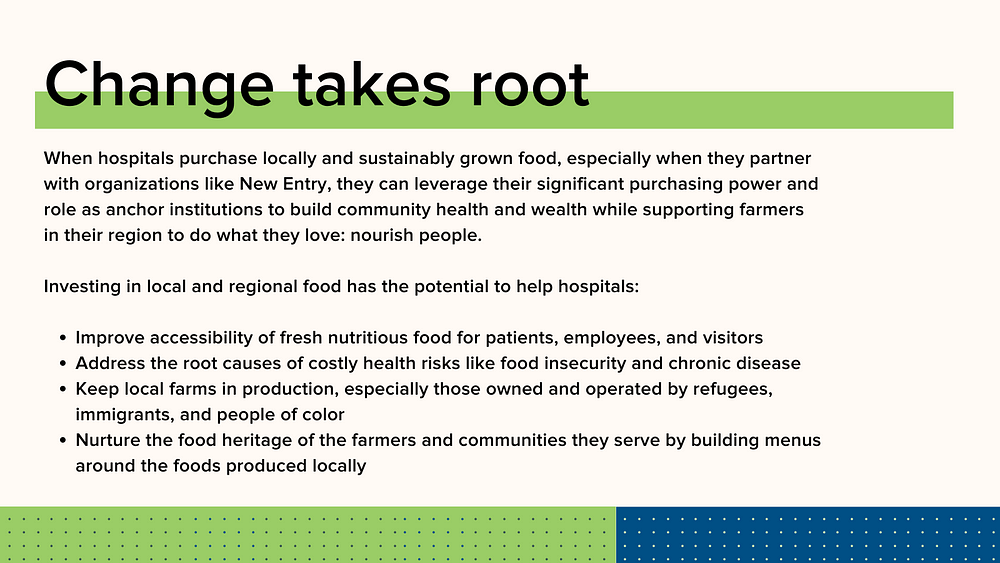Digging deep: How former refugees are growing their own businesses

When Phalla Nol’s father decided to follow his dream and become a farmer in Massachusetts, she helped him translate the classes he took into their native Khmer but struggled to see how they would make a living working the land.
Once she began to negotiate with local businesses to sell the pumpkins and broccoli that he and other former refugee farmers grew at the New Entry Sustainable Farming Project, Nol realised she could potentially make enough money farming to support her three children.
Eventually, she packed in her corporate job to sign up to New Entry herself. Instead of heading to the office each day, she now gets up at the crack of dawn to tend the Malabar spinach, winter melon, garlic, and other crops she grows on her 4.5 acres of land north of Boston.
“When I tell people I’m a farmer, they roll their eyes, they don’t believe me,” says Nol, who sells much of her produce at farmers markets in the Greater Boston area.
“I love farming. The food you grow yourself tastes completely different from what you buy in the supermarket.”
For farmers such as Nol, whose family fled Cambodia when she was 13, New Entry’s three-year incubator program is a valuable opportunity to learn the techniques needed to grow and eventually market their crops.
The program, based in Beverly, Mass., also helps farmers from countries including Iran, Cameroon, and Mexico, as well as the United States, to eventually find land to buy, lease, or borrow.
Set up by Tufts University over 20 years ago to help immigrants and refugees build crop production and planning skills, New Entry aims to open access to food systems, help people become economically independent, and ultimately make agriculture more ethnically diverse.
Now, alongside its community-supported agriculture (CSA) and food hub program, New Entry is looking to expand its network of institutional buyers and get more of its farmers’ produce on the menus at hospitals, schools, and universities across the state.
Winds of change
“The real focus of New Entry is thinking about who grows food, who has access to land and resources, and how we can prepare the next generation of farmers to farm in a way that is environmentally sustainable and culturally connected,” says Jennifer Hashley, director of New Entry.

Last year, New Entry ran a pop-up market selling the greens, eggplants and beets grown by farmers including Nol at the nearby Beverly Hospital, part of Beth Israel Lahey Health, as staff there worked around the clock to cope with the pandemic.
Squashes and other unsold vegetables were cooked and put on the cafeteria menu for the hospital’s staff, explains Cassandra Cracchiolo, executive chef for Unidine which runs the hospital catering.
“People were very excited to see that we were helping farmers within our community,” says Cracchiolo, who was on hand to explain how to best cook some of the produce. “The freshness of the food can’t be beat, especially from local farms.”
While the pandemic forced New Entry to shelf its regular social events for food-insecure local seniors, it continued to deliver thousands of bags of fresh produce, funded in part by Beth Israel Lahey Health’s community benefits scheme.
For seniors, its deliveries include a newsletter with healthy recipes and information about some of the less common crops such as the greens and white sweet potatoes grown by New Entry’s African farmers.
“I’m optimistic that there’s more of a spotlight now on the importance of local and regional food systems and racial justice,” says Hashley, explaining that people of color make up almost half of New Entry’s farmers.
“Our hope is that hospitals and other institutions will see the importance and win-win of a food-is-medicine approach and try to get more on board with supporting farmers of color and supporting local food.”
A pop-up autumn farmer’s market is now scheduled for the hospital.
Growing interest
Since the pandemic, applications for spots on New Entry’s incubator farm in Beverly have grown as more people decide they want to try their luck working the land with restaurant workers, machinists, and retirees among those applying.
To be considered, would-be farmers need to produce a business strategy showing how and when they plan to grow, market, and sell their crops, Hashley explains.
Once accepted, New Entry starts by giving them a quarter acre to farm and runs a series of workshops and classes to help them successfully navigate the short Massachusetts growing season and the impact of climate change.

Experts are on hand to help with any questions and resources such as irrigation, tractors, high tunnels, and wash stations are available for the farmers who sign up for the program.
“It’s like you have training wheels and you can practice, make mistakes, and learn in a safe environment how to do things better,” says Hashley.
But growing the 120-plus crops the incubator and alumni farmers produce is just part of the job. While New Entry buys much of the food for its CSA, it also helps farmers sell their crops to local health organizations, restaurants, and other businesses through its food hub.
It is also now exploring ways to use more of the crops its farmers produce. Freezing vegetables and producing prepared frozen meals and sauces are some of the options New Entry is exploring to add value and extend the growing season.
For farmers such as Nol, selling greater quantities through New Entry would help reduce the hours she spends marketing and selling produce and give her more time to spend tending and growing crops such as heirloom tomatoes, spicy basil, and lemongrass.
“I just love to see things grow, in the morning I can’t wait until the sunrise when I’m up at the farm,” says Nol.

Learn more about resilience in health care.
